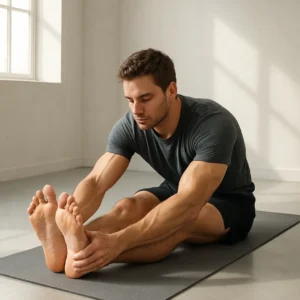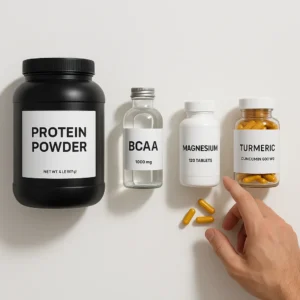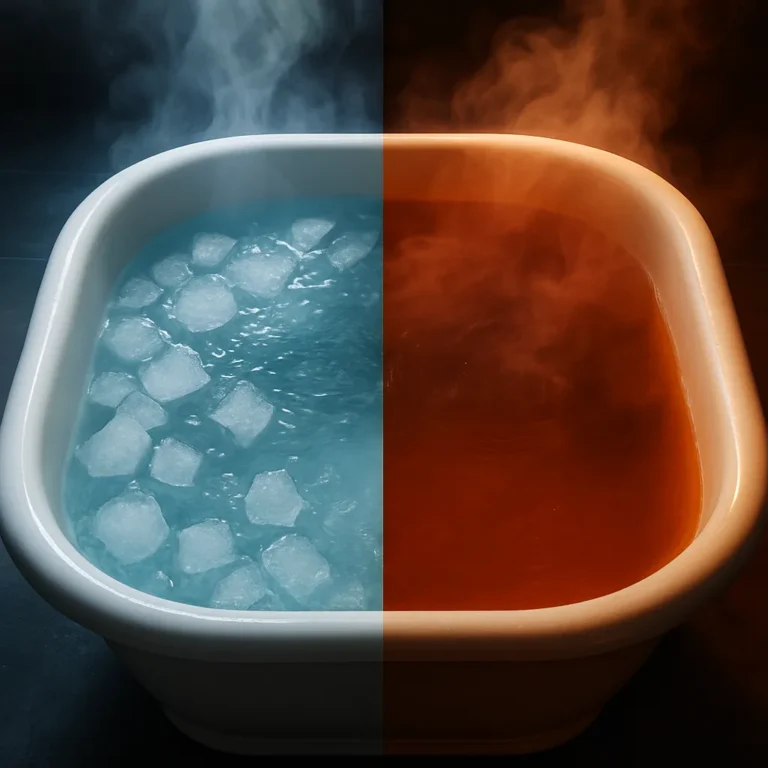How to Recover Fast from a Workout: Your Ultimate Guide to Quick Recovery
Whether you’re an avid gym-goer or someone who loves the occasional hike, we all know that post-workout recovery is essential. But let’s be honest—sometimes we wish we could skip the soreness and jump straight into the next adventure, right? Well, good news! With the right strategies, you can speed up recovery and get back on your feet faster than you think. In this guide, we’ll show you exactly how to recover fast from a workout so you can feel energized and ready for whatever comes next.
1. Rehydrate Like a Pro

Why Hydration Matters:
After a tough workout, your body loses a lot of water and electrolytes through sweat. Rehydrating is crucial for muscle repair and energy replenishment. Without proper hydration, you could experience muscle cramps, fatigue, and even a slower recovery process.
What to Do:
- Drink water immediately after your workout. Aim for at least 16-20 ounces within 30 minutes of finishing.
- If you’ve had a particularly intense session, consider sipping on an electrolyte drink to replenish sodium, potassium, and magnesium levels.
- For an extra recovery boost, you can even try coconut water or a homemade electrolyte drink with lemon, salt, and honey.
2. Refuel with the Right Nutrition

Fuel Your Body with the Right Nutrients:
Your muscles need protein to repair and rebuild after a workout. Carbs help replenish glycogen stores, and fats support long-term recovery. Eating a balanced post-workout meal or snack within 30-45 minutes of exercising is key to optimizing recovery.
What to Eat:
- Protein: A protein-rich meal will help repair muscle fibers. Think chicken, fish, tofu, or protein shakes.
- Carbohydrates: Your muscles need carbs to restock energy stores. Try rice, quinoa, whole grains, or sweet potatoes.
- Healthy Fats: Avocados, nuts, and seeds can help with inflammation reduction and muscle recovery.
Tip: A great post-workout snack combo could be a banana with a scoop of peanut butter or a protein smoothie with fruits and spinach.
3. Don’t Skip Stretching or Foam Rolling


Why Stretching is Important:
Stretching after a workout helps improve flexibility and prevent tight muscles. If you’re feeling stiff, it’s a sign that your muscles are tight and need a bit of love.
What to Do:
- Static Stretching: Hold each stretch for 20-30 seconds, targeting major muscle groups like quads, hamstrings, calves, and shoulders.
- Foam Rolling: This is like giving your muscles a deep massage. It helps release tension and break up knots in the muscles. Focus on the areas that feel the tightest, like your thighs, calves, or back.
Bonus: Incorporating yoga or a cool-down routine with deep breathing can help relax the mind and body after a workout.
4. Take an Ice Bath (Or Try Contrast Therapy)


Chill for Recovery:
Ice baths are a go-to recovery method for athletes, as cold water immersion helps reduce inflammation and muscle soreness. While it might sound uncomfortable, the benefits are definitely worth it.
What to Do:
- Fill a tub with cold water and ice (about 10-15°C/50-59°F). Submerge yourself for about 10-15 minutes.
- If ice baths aren’t your thing, you can also try contrast therapy—alternating between hot and cold showers. This stimulates blood flow and accelerates muscle repair.

Pro Tip: If you’re traveling and can’t find a tub, even a cold shower post-workout can do wonders for muscle recovery.
5. Get Quality Sleep

Sleep is Your Secret Weapon:
When it comes to muscle recovery, sleep is non-negotiable. This is when your body repairs tissues, builds muscle, and restores energy. Without quality sleep, your recovery process is slowed down, leaving you feeling sore for longer.
What to Do:
- Aim for 7-9 hours of sleep each night.
- Make your bedroom a recovery zone: keep it dark, cool, and quiet to promote deep sleep.
- Consider a nap if you need extra rest—just 20-30 minutes can give you a good energy boost.
Sleep Tip: If you’re having trouble sleeping after a workout, try some relaxation techniques like deep breathing or gentle yoga stretches to calm your mind.
6. Use Active Recovery (Low-Intensity Movement)

Active Recovery:
You might be tempted to take the day off after an intense workout, but moving lightly can actually help your muscles recover faster. Light exercises increase blood circulation, helping to remove lactic acid and other toxins from your muscles.
What to Do:
- Take a walk, do some light cycling, or try an easy swim. Aim for about 30 minutes of low-intensity movement the day after your workout.
- Gentle yoga or stretching can also promote recovery and help your muscles stay flexible.
7. Listen to Your Body

Recovery Isn’t One-Size-Fits-All:
Everyone’s body is different, and recovery needs vary from person to person. If you’re feeling fatigued, give yourself some time to rest. On the other hand, if you’re feeling a little sore but still energetic, go for some light movement to keep your blood flowing.
What to Do:
- Pay attention to how your body feels after different types of workouts. If your body is telling you it needs rest, honor that.
- Mix in rest days, especially after intense sessions, to avoid overtraining and give your muscles a break.
8. Try Supplements for Extra Support

Supplements for Muscle Recovery:
While whole foods should always be your priority, certain supplements can give your body a little extra help when recovering from tough workouts.
What to Consider:
- Protein Powders: These are great for post-workout recovery, especially if you can’t get enough protein from food alone.
- BCAAs (Branched-Chain Amino Acids): These help reduce muscle soreness and promote muscle repair.
- Magnesium: This mineral helps relax muscles and prevent cramping.
- Turmeric or Omega-3s: Both have anti-inflammatory properties that can reduce muscle pain.
In Conclusion: Fast Recovery Equals Better Performance
Recovering fast from a workout doesn’t mean rushing through the process. It’s about giving your body the right tools to repair itself efficiently so you can get back to what you love doing. Hydrating, fueling your body with the right nutrients, stretching, getting quality sleep, and incorporating light recovery activities are key to feeling refreshed and ready for your next workout or adventure.
What’s your go-to recovery method? Let us know in the comments below, and don’t forget to share this article with friends who might need a little recovery boost after their next workout!




